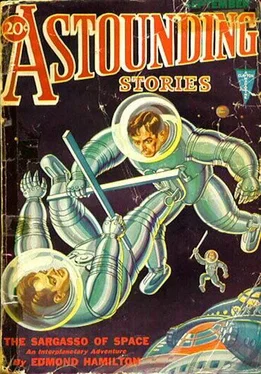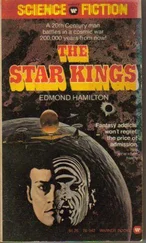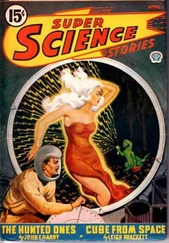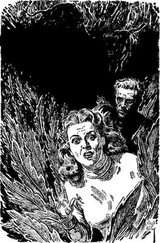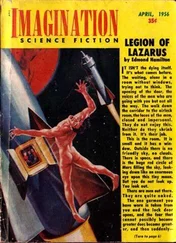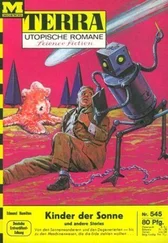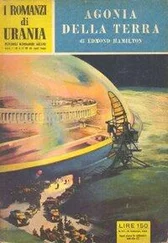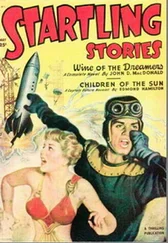Edmond Hamilton - The Sargasso of Space
Здесь есть возможность читать онлайн «Edmond Hamilton - The Sargasso of Space» весь текст электронной книги совершенно бесплатно (целиком полную версию без сокращений). В некоторых случаях можно слушать аудио, скачать через торрент в формате fb2 и присутствует краткое содержание. Жанр: Фантастика и фэнтези, на английском языке. Описание произведения, (предисловие) а так же отзывы посетителей доступны на портале библиотеки ЛибКат.
- Название:The Sargasso of Space
- Автор:
- Жанр:
- Год:неизвестен
- ISBN:нет данных
- Рейтинг книги:5 / 5. Голосов: 1
-
Избранное:Добавить в избранное
- Отзывы:
-
Ваша оценка:
- 100
- 1
- 2
- 3
- 4
- 5
The Sargasso of Space: краткое содержание, описание и аннотация
Предлагаем к чтению аннотацию, описание, краткое содержание или предисловие (зависит от того, что написал сам автор книги «The Sargasso of Space»). Если вы не нашли необходимую информацию о книге — напишите в комментариях, мы постараемся отыскать её.
.
The Sargasso of Space — читать онлайн бесплатно полную книгу (весь текст) целиком
Ниже представлен текст книги, разбитый по страницам. Система сохранения места последней прочитанной страницы, позволяет с удобством читать онлайн бесплатно книгу «The Sargasso of Space», без необходимости каждый раз заново искать на чём Вы остановились. Поставьте закладку, и сможете в любой момент перейти на страницу, на которой закончили чтение.
Интервал:
Закладка:
The Sargasso of Space
By Edmond Hamilton
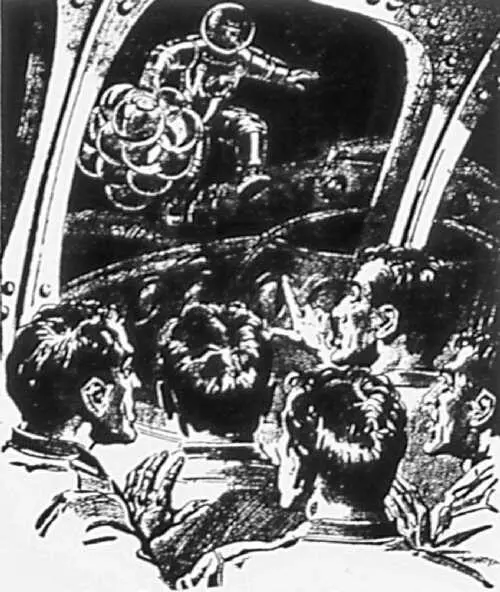
Captain Crain faced his crew calmly. "We may as well face the facts, men," he said. "The ship's fuel-tanks are empty and we are drifting through space toward the dead-area."
The twenty-odd officers and men gathered on the middle-deck of the freighter Pallas made no answer, and Crain continued:
"We left Jupiter with full tanks, more than enough fuel to take us to Neptune. But the leaks in the starboard tanks lost us half our supply, and we had used the other half before discovering that. Since the ship's rocket-tubes cannot operate without fuel, we are simply drifting. We would drift on to Neptune if the attraction of Uranus were not pulling us to the right. That attraction alters our course so that in three ship-days we shall drift into the dead-area."
Rance Kent, first-officer of the Pallas , asked a question: "Couldn't we, raise Neptune with the radio, sir, and have them send out a fuel-ship in time to reach us?"
"It's impossible, Mr. Kent," Crain answered. "Our main radio is dead without fuel to run its dynamotors, and our auxiliary set hasn't the power to reach Neptune."
"Why not abandon ship in the space-suits," asked Liggett, the second-officer, "and trust to the chance of some ship picking us up?"
The captain shook his head. "It would be quite useless, for we'd simply drift on through space with the ship into the dead-area."
The score of members of the crew, bronzed space-sailors out of every port in the solar system, had listened mutely. Now, one of them, a tall tube-man, stepped forward a little.
"Just what is this dead-area, sir?" he asked. "I've heard of it, but as this is my first outer-planet voyage, I know nothing about it."
"I'll admit I know little more," said Liggett, "save that a good many disabled ships have drifted into it and have never come out."
"The dead area," Crain told them, "is a region of space ninety thousand miles across within Neptune's orbit, in which the ordinary gravitational attractions of the solar system are dead. This is because in that region the pulls of the sun and the outer planets exactly balance each other. Because of that, anything in the dead-area, will stay in there until time ends, unless it has power of its own. Many wrecked space-ships have drifted into it at one time or another, none ever emerging; and it's believed that there is a great mass of wrecks somewhere in the area, drawn and held together by mutual attraction."
"And we're drifting in to join them," Kent said. "Some prospect!"
"Then there's really no chance for us?" asked Liggett keenly.
Captain Crain thought. "As I see it, very little," he admitted. "If our auxiliary radio can reach some nearby ship before the Pallas enters the dead-area, we'll have a chance. But it seems a remote one."
He addressed himself to the men: "I have laid the situation frankly before you because I consider you entitled to the truth. You must remember, however, that while there is life there is hope.
"There will be no change in ship routine, and the customary watches will be kept. Half-rations of food and water will be the rule from now on, though. That is all."
As the men moved silently off, the captain looked after them with something of pride.
"They're taking it like men," he told Kent and Liggett. "It's a pity there's no way out for them and us."
"If the Pallas does enter the dead-area and join the wreck-pack," Liggett said, "how long will we be able to live?"
"Probably for some months on our present condensed air and food supplies," Crain answered. "I would prefer, myself, a quicker end."
"So would I," said Kent. "Well, there's nothing left but to pray for some kind of ship to cross our path in the next day or two."
Kent's prayers were not answered in the next ship-day, nor in the next. For, though one of the Pallas' radio-operators was constantly at the instruments under Captain Crain's orders, the weak calls of the auxiliary set raised no response.
Had they been on the Venus or Mars run, Kent told himself, there would be some chance, but out here in the vast spaces, between the outer planets, ships were fewer and farther between. The big, cigar-shaped freighter drifted helplessly on in a broad curve toward the dreaded area, the green light-speck of Neptune swinging to their left.
On the third ship-day Kent and Captain Crain stood in the pilot-house behind Liggett, who sat at the now useless rocket-tube controls. Their eyes were on the big glass screen of the gravograph. The black dot on it that represented their ship was crawling steadily toward the bright red circle that stood for the dead-area....
They watched silently until the dot had crawled over the circle's red line, heading toward its center.
"Well, we're in at last," Kent commented. "There seems to be no change in anything, either."
Crain pointed to the instrument-panel. "Look at the gravitometers."
Kent did. "All dead! No gravitational pull from any direction—no, that one shows a slight attraction from ahead!"
"Then gravitational attraction of some sort does exist in the dead-area after all!" Liggett exclaimed.
"You don't understand," said Crain. "That attraction from ahead is the pull of the wreck-pack at the dead-area's center."
"And it's pulling the Pallas toward it?" Kent exclaimed.
Crain nodded. "We'll probably reach the wreck-pack in two more ship-days."
The next two ship-days seemed to Kent drawn out endlessly. A moody silence had grown upon the officers and men of the ship. All seemed oppressed by the strange forces of fate that had seized the ship and were carrying it, smoothly and soundlessly, into this region of irrevocable doom.
The radio-operators' vain calls had ceased. The Pallas drifted on into the dreaded area like some dumb ship laden with damned souls. It drifted on, Kent told himself, as many a wrecked and disabled ship had done before it, with the ordinary activities and life of the solar system forever behind it, and mystery and death ahead.
It was toward the end of the second of those two ship-days that Liggett's voice came down from the pilot-house:
"Wreck-pack in sight ahead!"
"We've arrived, anyway!" Kent cried, as he and Crain hastened up into the pilot house. The crew was running to the deck-windows.
"Right ahead there, about fifteen degrees left," Liggett told Kent and Crain, pointing. "Do you see it?"
Kent stared; nodded. The wreck-pack was a distant, disk-like mass against the star-flecked heavens, a mass that glinted here and there in the feeble sunlight of space. It did not seem large, but, as they drifted steadily closer in the next hours, they saw that in reality the wreck-pack was tremendous, measuring at least fifty miles across.
Its huge mass was a heterogeneous heap, composed mostly of countless cigar-like space-ships in all stages of wreckage. Some appeared smashed almost out of all recognizable shape, while others were, to all appearances unharmed. They floated together in this dense mass in space, crowded against one another by their mutual attraction.
There seemed to be among them every type of ship known in the solar system, from small, swift mail-boats to big freighters. And, as they drifted nearer, the three in the pilot-house could see that around and between the ships of the wreck-pack floated much other matter—fragments of wreckage, meteors, small and large, and space-debris of every sort.
The Pallas was drifting, not straight toward the wreck-pack, but in a course that promised to take the ship past it.
Читать дальшеИнтервал:
Закладка:
Похожие книги на «The Sargasso of Space»
Представляем Вашему вниманию похожие книги на «The Sargasso of Space» списком для выбора. Мы отобрали схожую по названию и смыслу литературу в надежде предоставить читателям больше вариантов отыскать новые, интересные, ещё непрочитанные произведения.
Обсуждение, отзывы о книге «The Sargasso of Space» и просто собственные мнения читателей. Оставьте ваши комментарии, напишите, что Вы думаете о произведении, его смысле или главных героях. Укажите что конкретно понравилось, а что нет, и почему Вы так считаете.
